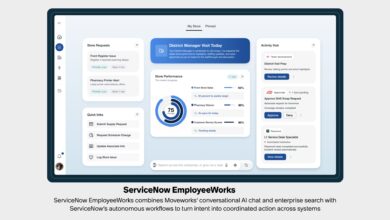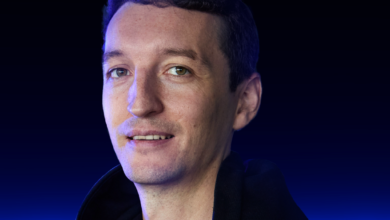Gartner Reveals Key Software Engineering Trends for 2025

Gartner has released its analysis of the top strategic trends in software engineering for 2025 and beyond. These trends focus on leveraging AI-driven automation and developing efficient, forward-looking engineering practices.
“AI-enabled tools and technologies are fundamentally changing how software is built and delivered,” said Joachim Herschmann, VP Analyst at Gartner. “Gartner’s top trends offer leaders a roadmap to harness AI-driven automation, optimize talent strategies and adopt sustainable, AI-native engineering practices. Software engineering leaders who act on these trends now will position their organizations for long-term success.”
Gartner advises organizations to prioritize investments aligned with these six strategic trends in their roadmaps for 2025 and beyond:
- AI-Native Software Engineering: This approach integrates AI into every phase of the software development life cycle (SDLC), from design to deployment, enabling AI to handle a significant portion of tasks autonomously or semi-autonomously. Gartner predicts that by 2028, 90% of enterprise software engineers will use AI code assistants, an increase from less than 14% in early 2024. The role of developers is expected to shift towards orchestration, problem-solving, and system design, ensuring AI tools produce quality outcomes. Teams will need to balance automation with human oversight, considering business criticality, risk, and workflow complexity.
- Building LLM-Based Applications and Agents: Large language models (LLMs) are influencing software engineering by allowing applications to interact intelligently and autonomously. Gartner predicts that by 2027, at least 55% of software engineering teams will be actively developing LLM-based features.
- GenAI Platform Engineering: This trend applies platform engineering principles to help developers discover, integrate, and securely use GenAI capabilities within their applications. Gartner predicts that by 2027, 70% of organizations with platform teams will incorporate GenAI capabilities into their internal developer platforms. By offering self-service developer portals, prioritizing features based on developer needs, and integrating robust governance and security, leaders can support the creation of applications that adhere to organizational standards.
- Maximizing Talent Density: Talent density, defined as the concentration of highly skilled professionals within teams, is becoming a differentiator for high-performing engineering organizations. When supported by appropriate culture and technology strategies, talent-dense teams can operate with greater efficiency and adaptability, delivering increased customer value.
- Growth of Open GenAI Models and Ecosystem: Open GenAI models are changing the enterprise AI landscape by offering flexibility, reduced costs, and freedom from vendor lock-in. Unlike proprietary models, open GenAI models enable organizations to customize, fine-tune, and deploy AI solutions tailored to their specific requirements, whether on-premises or in the cloud. This shift is making advanced AI capabilities more accessible and cost-effective for a wider range of teams and use cases. Gartner predicts that by 2028, 30% of total global enterprise spending on GenAI technologies will be on open GenAI models optimized for domain-specific use cases.
- Green Software Engineering: This discipline focuses on developing sustainable software that is carbon-efficient and carbon-aware. It promotes integrating environmentally conscious practices from the initial planning stages through production.
“Successfully building LLM-based applications and agents requires software engineering leaders to rethink their strategies,” said Herschmann. This means investing in upskilling, experimenting with generative AI (GenAI) outputs and implementing strong guardrails to manage risks. To remain competitive, organizations must move beyond traditional hiring practices and focus on building teams with high talent density. Leaders should cultivate a culture of continuous learning and collaboration to attract and retain skilled professionals who can adapt and grow with evolving business needs. As organizations build and buy more software as part of digital initiatives, the increase in carbon footprint from compute-intensive workloads can be at odds with their sustainability targets. Building intelligent applications with GenAI is energy intensive, making green software engineering practices essential.”




